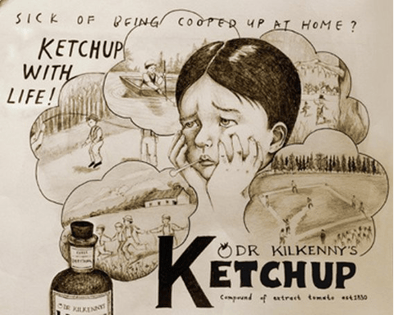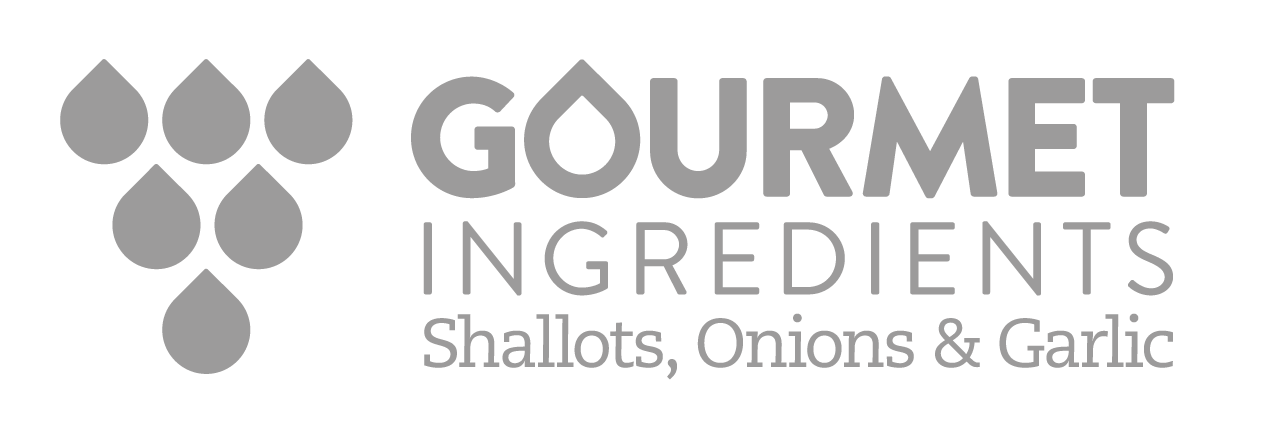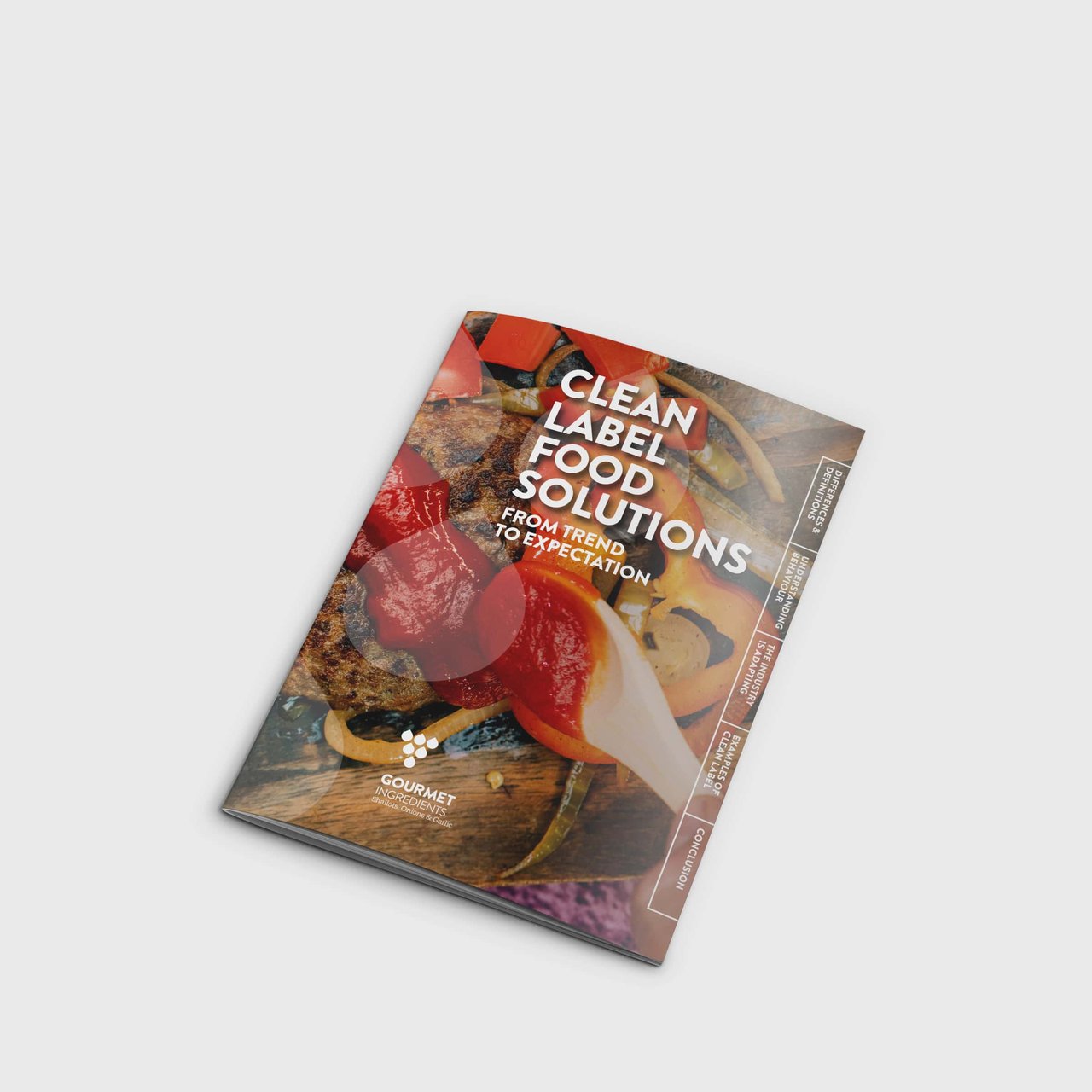How we made sugar-free ketchup that is actually tasty
It’s Sunday and you’re at the dinner table with your kids. As last week’s self-made pizza was an immediate success, today, homemade burgers are on the menu. But we all know a burger rarely comes alone, so french fries and ketchup have joined the team as well. The buns are open and while you pile up a mini tower of indulgence, your work is interrupted by the kids grabbing the ketchup bottle and creating the oh-so-familiar airy sound when squeezing. The whole table inevitably giggles along.
Your laughter might quickly come to a halt though when you realise that one serving of the beloved red condiment is hardly enough. Two tablespoons for the french fries and another 1-2 on the burger itself. Every plate ends up with at least four (or more) tablespoons of ketchup which equals about 12 grams of sugar. You might as well have served some chocolate chip cookies at this point.
But fear you must not! In this blog you’re going to learn about:
- the surprising history of the red sauce and why it was sold as medicine at some point
(yes, really!)
- what low-sugar ketchup is all about
- how we make sugar-free ketchup that is actually tasty
Let’s dip into it!
Ancient fish sauce with roots in China
Surprisingly, the ketchup many know and love today has little to do with its origin that dates back to 300 B.C., imperial China. The forefather of ketchup was a fermented fish sauce called “ge-thcup” or “koe-cheup” and was taken along expeditions on the ocean. It was easy to store and durable. After having made its way to Indonesia and the Philippines, the British got a taste of the fishy condiment in the early 1700s and took it back home.
In the years to follow, the sauce became increasingly popular in Britain but with no tomatoes whatsoever for the recipe. The juicy red veggies (however, botanically classified as fruits) made their debut into ketchup only in 1812 in the United States. The company Heinz then perfected the formulation with vinegar, salt, sugar and other spices - the rest is history.
Is sugar-free ketchup any good?
First of all: why all that sugar anyway? The answer is fairly easy. To balance the acidity of tomatoes, sugar is the perfect tastemaker, thickener, and on top of all, a very cheap ingredient that extends its shelf-life. But with the white granulated sweetener being bad news for health in the last decades, countless companies have launched “sugar-free” or “reduced sugar” versions of their best sellers to answer the demand of a changing consumer lifestyle.
Unless you decide to make ketchup from scratch at home, industrial “sugar-free” products will probably still come with other less favourable ingredients that have to make up for the gap in the formula. One of those ingredients is sucralose - a non-caloric and artificial sweetener (E955) that is hundreds of times sweeter than traditional sugar. Sucralose passes through the body without being absorbed and therefore represents an alternative for people with diabetes or the ones following certain diets, like Keto.
Side note: To compensate for the thickening effect of sugar, a lot of recipes will use pectin. This is a complex set of polysaccharides extracted from citrus fruits and often used as a gelling agent in foods.
Approved as an additive (E960) by the European Union in 2011, stevia is also used by companies for their sugar reduction goals in ketchup. This natural sweetener comes from the South American plant and is also many times stronger than regular sugar. Stevia probably gained worldwide popularity with the introduction of Coca Cola Life. Depending on the use and application, you might have to overcome a bitter aftertaste with this sweetener.
For both sucralose and stevia, there are many sources and reports discussing possible health risks. While sucralose might increase inflammation in your body and affect gut bacteria, stevia is reported to nauseate consumers and cause upset stomachs. Neither comes with a clean slate and their studies are often industry-funded, leaving a question mark for long-term effects.
Trivia: When Ketchup was sold as medicine
For a long time, people believed tomatoes to be poisonous. That was until 1834 when Dr. John Cooke Bennett added tomatoes to ketchup and turned it into a popular drug in the United
States. His research claimed that tomatoes would cure diarrhoea, cholera, jaundice, indigestion, and rheumatism. With heavy advertising in newspapers, the “extract of tomato” came in the form of pills and liquid. However, as scientists made progress and took a closer look at Bennett’s work, they quickly came to dismiss the health claims as a hoax.

Replace added sugars entirely with sweet onion concentrate
At Gourmet Ingredients, we produce onion concentrate that is syrup-like and perfect to use for soups, sauces, meat, meat alternatives, baked goods and snacks. We call it PlantSweet - it’s 100% natural, clean label and allergen-free. Our product developers have already created sugar-free ketchup by using PlantSweet concentrate. The result was great in both taste and texture. So, how do we make that happen and why are onions perfect for it?
It all starts with the growing process. We cultivate onions with a high natural sugar content. By breaking down longer carbohydrates into shorter chains, we are able to boost fructose content by up to 600% and glucose by up to 300%. This delivers a strong sweetness impact and is perfectly suitable to replace artificial sugar entirely for many hearty applications. The best thing about it: PlantSweet also delivers a mild savoury taste note which blends very well in an application like ketchup.
While clean label is about more natural and recognisable ingredients, it is also about what makes sense to the consumers. Think about it: what sounds more wholesome and logical to a food lover seeking a healthier lifestyle - ketchup with stevia and sucralose? Or ketchup that contains onion concentrate?
Read more about our onion concentrates here:
https://www.gourmet-ingredients.nl/en/products-onion-concentrate






